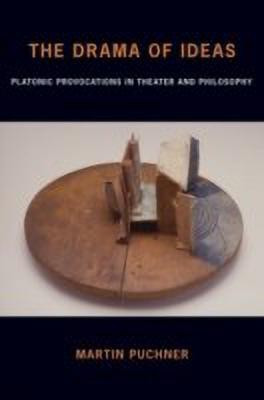The Drama of Ideas(English, Hardcover, Puchner Martin)
Quick Overview
Product Price Comparison
Most philosophy makes little mention of the theater except to denounce it as a place of illusion and moral decay. The theater has tended to respond in kind by steering away from philosophy, driven by the notion that theater consists of actions, not ideas. The Drama of Ideas argues that despite this mutual evasion, the histories of philosophy and theater have in fact been crucially intertwined. Appointing Plato as a hinge figure, Puchner traces this alternative tradition as well as recounting the long-standing philosophical register in drama and philosophy's more recent theatrical shift.Moving from a consideration of Plato as a dramatist to those Renaissance playwrights who drew on Plato's chief character, Socrates, Puchner articulates an alternative history of the theater which places philosophy front and center. He believes that modern drama should be understood as Platonic, rather than anti-Aristotelian, as it is often labeled. When Oscar Wilde, George Bernard Shaw, August Strindberg, Luigi Pirandello, Georg Kaiser and Bertolt Brecht are contextualized in light of this alternative perspective, they emerge as major contributors to a drama of ideas. Philosophy underwent a corresponding theatrical shift in the modern era, most importantly through the work of Kierkegaard, Nietzsche, Sartre, and Camus. More recently, Kenneth Burke and Gilles Deleuze have used a theatrical models perspective through which to write the history of philosophy, while contemporary descendants of Plato's dramatic imagination include Iris Murdoch, Martha Nussbaum and Alain Badiou.


